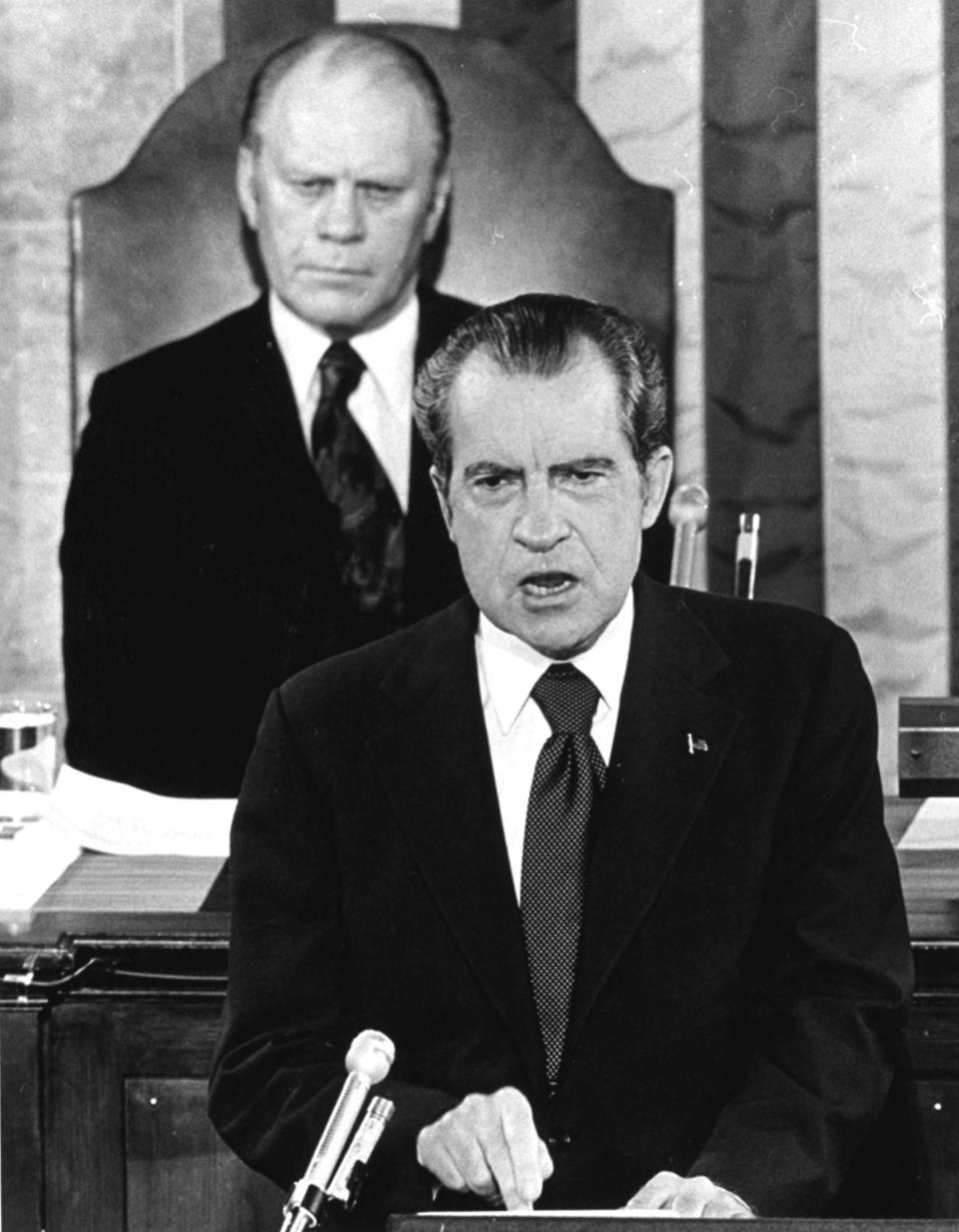Here's what the 25th Amendment to the Constitution says about presidential succession
Editor's note: This is a regular feature on issues related to the Constitution and civics written by Paul G. Summers, retired judge and state attorney general.
The 25th Amendment addresses vacancies in the offices of president and vice president.
The amendment speaks to the inability of the president “to discharge the powers and duties of his office.”
It also addresses Congress’ duties and responsibilities in situations wherein the president is allegedly unable to so discharge.
The amendment focuses on a voluntary and involuntary relinquishment of power and duties of the office of president.
The amendment was ratified by the states on February 10, 1967. Because of its complexity, we shall take two articles to discuss.
Here is what the 25th Amendment says
Section 1 provides that “(i)n case of the removal of the President from office or of his death or resignation, the Vice President shall become President.”

The second section provides that should a vacancy exist in the office of vice president, the president shall nominate a vice president.
He or she takes office upon a majority vote confirmation of both the Senate and the House of Representatives.
The third section concerns itself with when the president agrees that he or she is incapable or unable to perform his job as president.
The amendment requires that the president transmits a written declaration to the president pro tempore of the Senate and the Speaker of the House of Representatives.
The president states “that he (or she) is unable to discharge the powers and duties of his office….”
Until the president transmits a written document that states that he or she is now able to discharge powers and duties of office, the vice president shall be acting president.
There is a process for if the president is unable or unwilling to step down
Let us suppose that the president is unable physically or mentally to discharge his or her duties and powers.
However, what is the procedure if, for whatever reason, he or she will not or cannot submit a voluntary written document to that effect?
If the president was unable to mentally or physically agree to and sign such a written document, then is there a constitutional procedure where someone can take his or her place until that disability is no longer an issue?
To answer these questions, we shall explore later sections of the 25th Amendment. These sections answer those questions.
We shall continue our study of the 25th Amendment to the U. S. Constitution. Reading the Constitution is time well spent.
Paul G. Summers is an attorney. He formerly served as an appellate and senior judge, district attorney general, and attorney general of Tennessee. Raised in Fayette County, Judge Summers lives in Holladay and Nashville.
This article originally appeared on Nashville Tennessean: Constitution history: 25th Amendment details presidential succession

